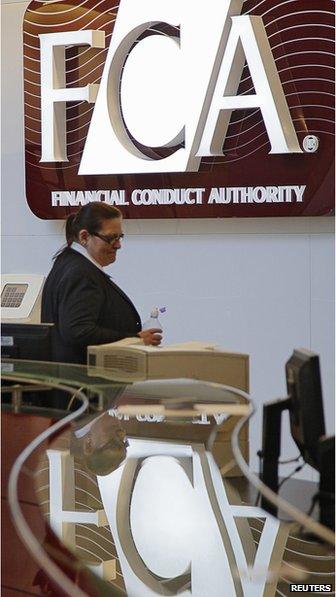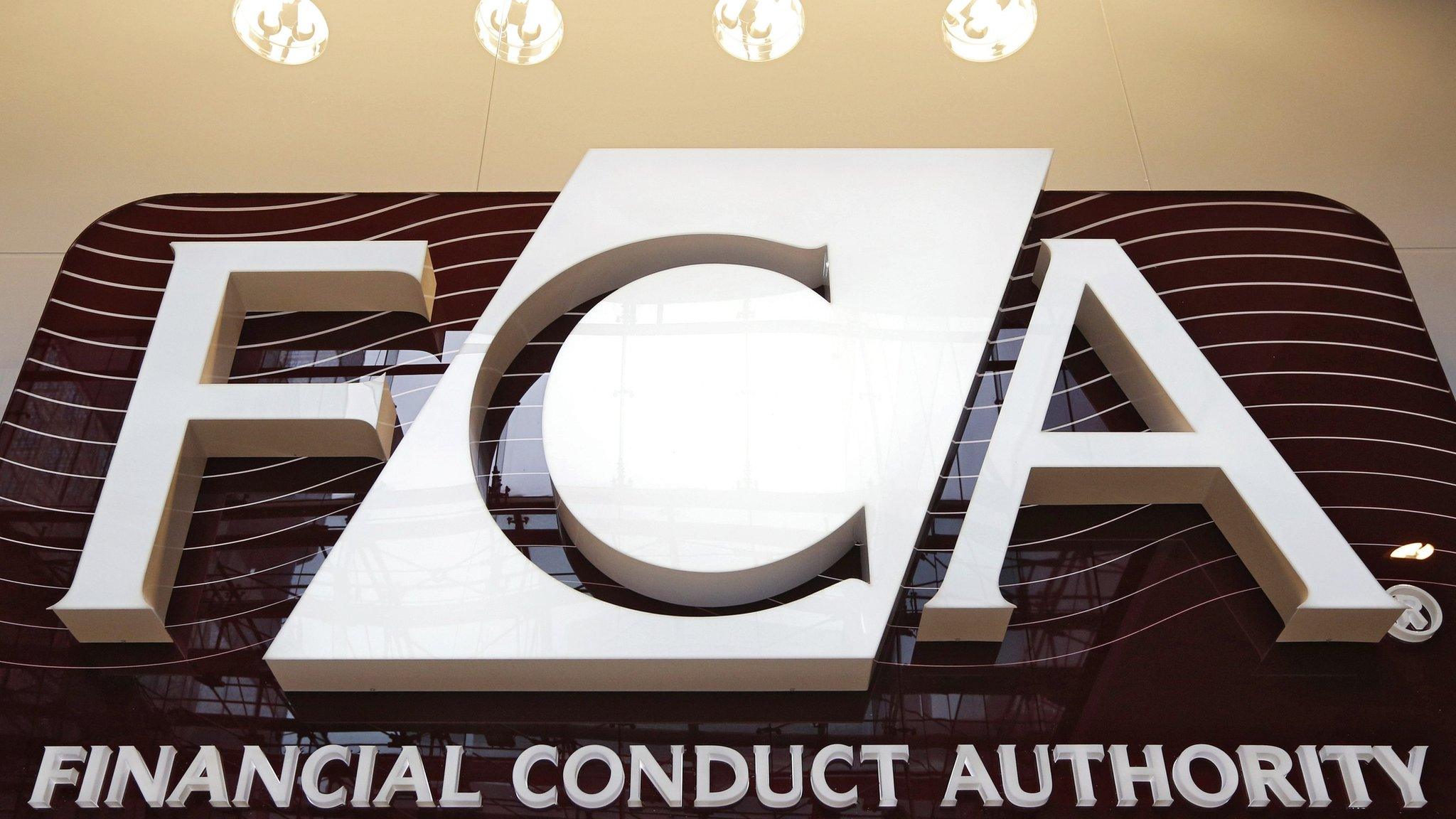Four staff at FCA City watchdog to lose bonuses
- Published

FCA head Martin Wheatley will lose a bonus of up to £115,000
Four top executives at the Financial Conduct Authority (FCA) are to lose their bonuses.
It comes after a highly critical report on the way the regulator leaked highly sensitive information to the media.
An independent report, external found that the FCA's strategy was "high-risk, poorly supervised and inadequately controlled".
A story, leaked to the Daily Telegraph paper in March this year, contained price-sensitive information.
The resulting article claimed that the FCA was planning an investigation of 30 million pension policies, some of which had been sold as long ago as the 1970s.
Billions of pounds were wiped off the share prices of big insurance companies.
Andrew Tyrie, chairman of the House of Commons Treasury Committee, said that some of the errors in the FCA's conduct "went all the way to the top".
But although Martin Wheatley, the head of the FCA, will lose a bonus of up to £115,000 this year, he escapes serious criticism in the report, and has previously insisted that he would not stand down.
Price sensitivity
The FCA said, external it accepted the criticisms and apologised for its mistakes.
The report into its conduct, written by Simon Davis of law firm Clifford Chance, said the FCA had not addressed the issue of whether the information given out might be price sensitive.
John Griffith-Jones, the FCA's chairman, said: "The board fully accepts Mr Davis' criticisms, and on behalf of the FCA, we apologise for the mistakes that were made."
Two of the executives criticised in the report have ready stepped down from the FCA.
Clive Adamson, the head of supervision, "should have appreciated" the risk that the briefing to the Telegraph could contain price sensitive information, said the report.
Earlier this week it was announced that Mr Adamson, along with Zitah McMillan, the director of communications, would leave the FCA.
Exit fees

The FCA said it would now change its systems, to make sure the situation never happened again.
The newspaper article in March suggested that millions of poor-value pensions were going to be investigated by the FCA.
They were said to be "rip-off" policies, with customers trapped by high exit fees.
In its briefing at the time, the FCA suggested that such exit fees might be banned.
It was this particular element which caused nearly £3bn to be wiped off insurance company shares on 28 March, before the FCA issued clarification later in the day.
Nine complaints
The report found that as a result of the misleading briefing, there was a "false" market in the shares of insurance companies, and possibly a "disorderly" market as well.
The FCA said it had received nine complaints from investors who claimed to have lost money as a result.
Five other senior staff members of the FCA will take a 25% cut in their bonuses.
Mr Wheatley has previously insisted he would not resign over the mistakes.
"My board has total confidence in Martin Wheatley," said FCA chairman John Griffiths-Jones.
However, the chairman of the House of Commons Treasury Committee was highly critical of the FCA's behaviour.
Andrew Tyrie, MP, said the Davis report had told the story of an FCA "pursuing the wrong strategy in the wrong way".
'Lasting damage'
Mr Tyrie added: "The catalogue of errors made across the organisation is shocking - and some of the errors went to the top."
He said it had been unacceptable that the FCA board had originally intended to hold an internal inquiry, with some "external support".
"I immediately pressed, on behalf of the Treasury Committee, for a fully independent inquiry led by a demonstrably impartial figure. It is now abundantly clear that this was needed," he said.
"The FCA has fallen well below the standards it requires of the firms it regulates. Mr Davis has concluded that the body comprising the UK listing authority, in premeditated briefing, created a false market - causing considerable market uncertainty, worry for many consumers and some lasting damage."
He said his committee would now examine whether the FCA's errors were a one-off or whether they revealed something seriously amiss with the standards and culture of the body.
- Published9 December 2014
- Published8 December 2014

- Published1 April 2014
